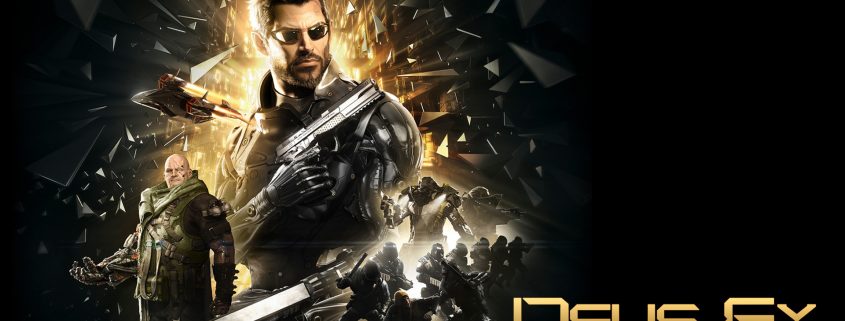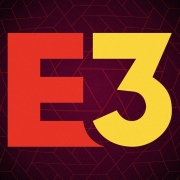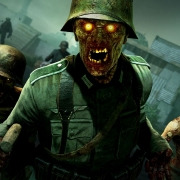Deus Ex: Mankind Divided Review
Opinion Divided
The ending of a story is paramount. Depending on how you end your story, you can change the audience’s feelings from that of joy, to one of sourness. It can change something that feels perfect, into something that feels hollow.
Such is the conundrum with Deus Ex: Mankind Divided.

Mankind Divided is excellent. Really, really excellent. But there are some large issues that greatly impact the game.
Mankind Divided is the sequel to the surprise smash hit Deus Ex: Human Revolution released back in 2011, a game that no one seemly asked for (inset “I never asked for this” joke here) and blew everyone away with just how well made and executed the whole thing was.
Now, five years later, and with a lot of hype to live up to, we get an unfinished sequel.

Mankind Divided takes place a year after Human Revolution after Adam wakes up from being in a coma for a year following the incident in panchaea. He’s now part of a new counter-terrorism task force based in Prague, while also covertly working with another group in hopes of learning more about the world’s secret society, the illuminati. All of this happens while he tries to deal with the new segregation laws put in place thanks to the Aug incident that killed thousands one year ago.
It should be pretty obvious from the overview, but Mankind Divided expects you to of played the first game. And not to have just played it, but to know it well.
The game does give a 20 minute overview at the start that helps to try “refresh” those who played the first game, but it still doesn’t do anything for those who know nothing about the series. This is all fine and dandy for fans of the 15 year old series, as being expected to consume large amounts of information is considered the norm. But to new fans or those wanting to check out Mankind Divided with no prior knowledge of the series, there’s going to be a whole lot of confusion.
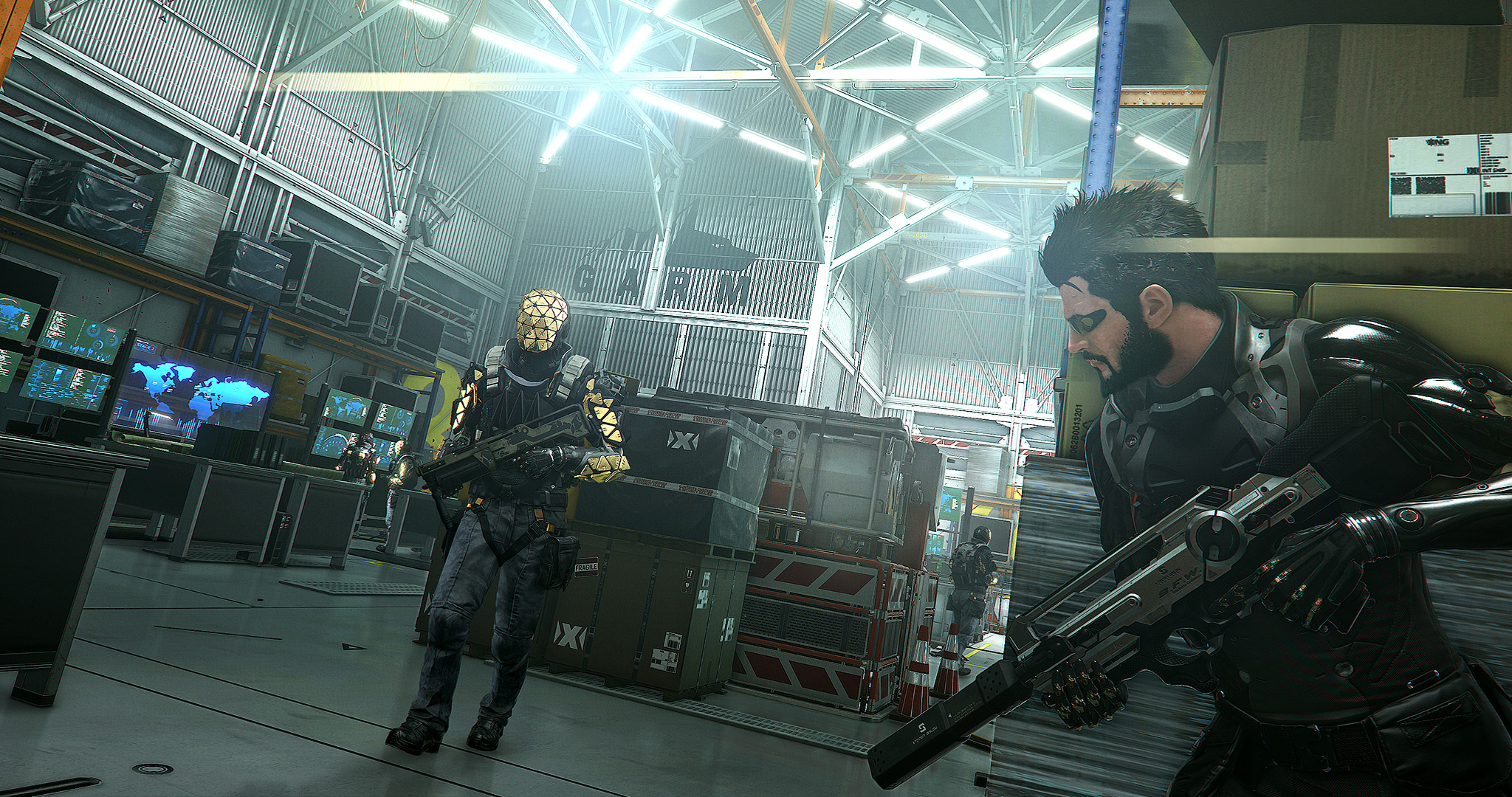
Once the game overloads you with information, it throws you into the open world city of Prague. From there, Adam is free to explore and interact with those in need of help. Much of the game is doing this, as the story itself is incredibly short, and so most of the time in-game is spent completing side missions for civilians, police, and sometimes faces from the past.
The side missions are by far the most interesting aspect of the game. Each one has Adam doing something different yet fitting to his personality. He gets to help with a murder investigation, help smuggle immigrants, kill assassins, and even stop an evil cult.
There’s a lot to do in Mankind Divided, and it does it all extremely well. At no point was it ever boring or tedious, and it was always exciting to see what challenges were waiting to be overcome.

The gameplay itself is pretty much the same as Human Revolution, but slightly improved. The cover system is now much better, allowing quick in-and-out takedowns, and gunplay feels more like a modern shooter than before. But the biggest improvement are the new upgrades for Adam.
Adam loses his powers near the start of the game (Oh yeah, it’s one of THOSE games) and has to go about getting them all again. But now there are new and wonderfully overpowered upgrades that can make Adam into the world’s greatest killing or sneaking machine.
There’s an option to be able to hack from a distance, making Adam almost undetectable. Or one that allows Adam to fire blades out of his arms that slice people’s heads off, making him the next Genghis Khan!

The upgrades are a welcome improvement to the series, and tease what exciting new prospects there are for the future.
But that’s the game’s problem, it teases. So much of the game is hyping up and dropping tantalising hints about something big coming, but it never does. Just when the game feels like it’s about to finish its first act, the credits roll. And you’re just sat there looking at the screen, questioning if the game is just messing with you or if it really did just end this early in.
Sadly, that’s Mankind Divided for you, a game with so much hype and buildup that never delivers on any of it.

And to pour flaming salt on a bleeding flesh wound, it’s been announced that the game is going to receive additional story DLC that should make this short side chapter make more sense in the long run.
Ouch.
And it’s not just the game’s ending that messes things up. Throughout the entire fantastic romp through neo-future Prague, there’s an underlying message that fails to make any real impact.
The game tries something new with it’s segregation. Since Adam is an Aug (augmented person with cybernetic limbs), he is forced to live as a lower class citizen. He has to live in the outer walls of the city, he has to queue for and ride the train in a separate area from everyone else, and he can be refused service, all because he has metal limbs. The game tries to show how unfair and unjust this is by letting the player experience it first hand, but it doesn’t quite work.

Adam works for a company that’s pretty much above most government levels, and therefore has clearance to pretty much anywhere. So whenever police in the game stop you and demand to see your papers, they’re immediately taken aback and let you go. This quickly stops being a metaphor for apartheid and becomes more of a game about “You don’t know who you’re messing with”.
You’re a government issued walking death machine for crying out loud!
But it’s not all Mankind Divided fault. What really holds the game back is that it’s a sequel to an already fantastic game.
Human Revolution was such a massive benchmark for how modern RPGs can still encapsulate the joys of old school PC games, that trying to follow that up with something was bound to be near impossible. And because of that, Mankind Divided takes more damage than it should.
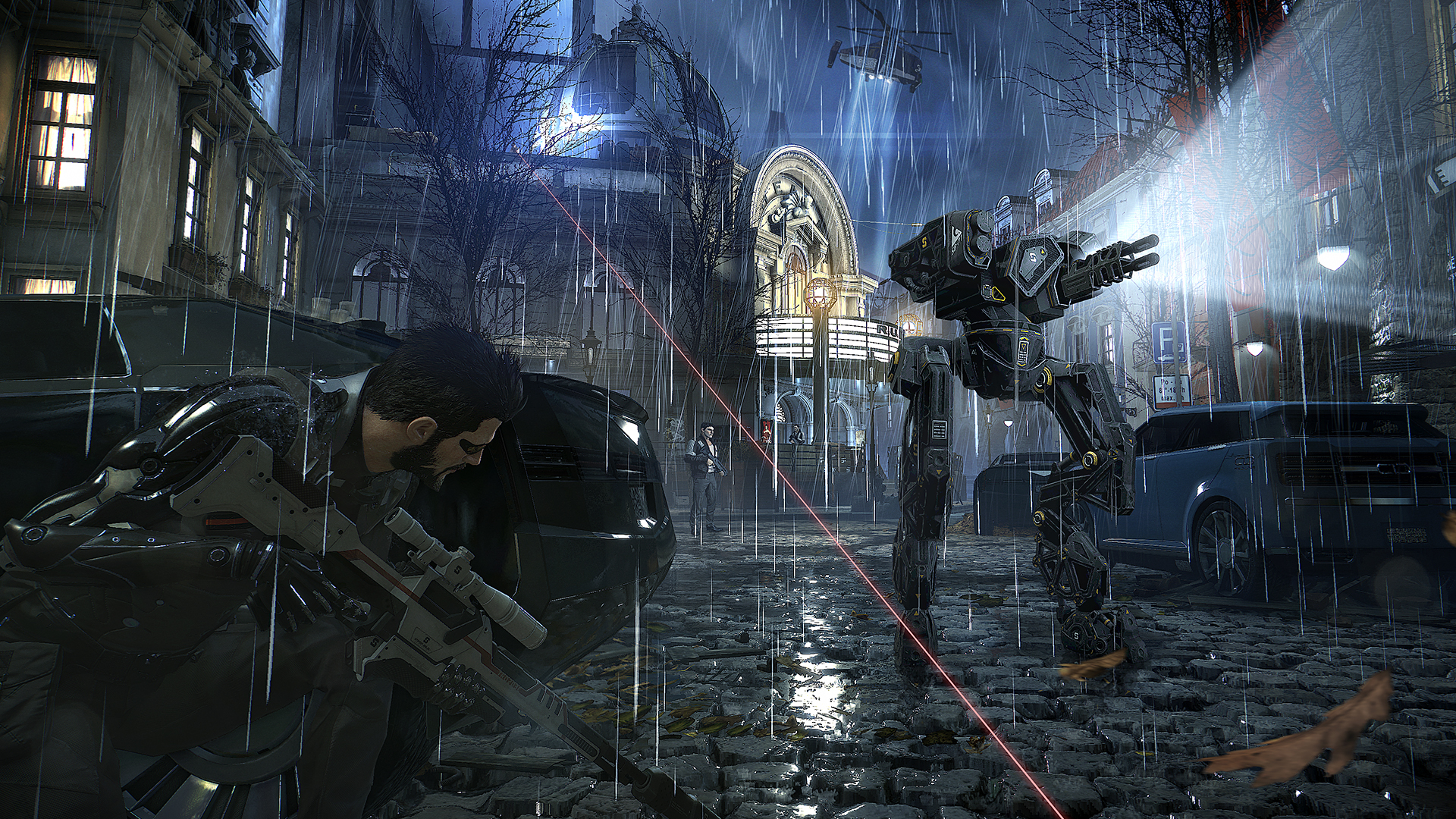
Once you start to compare the two, it becomes clear pretty quickly that Mankind Divided is a rushed project. The massive size and scale from the first game has been bumped down to just one small open world area, with massive loading screens areas in between. Side missions have been reduced to make them “more meaningful to the overarching story”, and the ability to simply just talk to characters who aren’t related to any quests is outright gone.
Talking to a cracked up prostitute in Human Revolution was a strange experience for sure, but it was one of the many quirks that made it so memorable.
Overall, Deus Ex Mankind Divided is a wonderful game that is certainly worth playing, but it needs to be said that this is very much a side story in the Adam Jensen story arc, not the next main entry in the mind blowing series. The gameplay and world building is as great as it’s always been, but there’s just not a lot of it this time around. Sure, you can go through it again on a harder difficulty and play differently, but that’s not really an excuse to the fact that Mankind Divided is only half a game.

